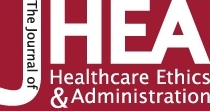Current Issue: Vol.11 No.1 (Winter 2025)
ISSN 2474-2309
Research Ethics
Pages: 1-6
The chronic shortage of healthcare workers presents significant ethical and legal challenges, particularly regarding the quality of patient care and safety. This paper explores the implications of healthcare worker shortages, focusing on their impact on labor cost, compromised patient care, increased medical errors, and rising malpractice claims. Healthcare institutions face legal risks when they fail to meet mandated staffing ratios, which can result in penalties, fines, and lawsuits. Furthermore, overworked staff, often subject to extended hours and excessive workloads, raise concerns about labor law violations, including non-compliance with mandatory rest periods and fair overtime compensation. The increased reliance on contract workers to fill staffing gaps also introduces legal challenges related to contract disputes, working conditions, and patient safety. Addressing these shortages is critical to preventing further harm to patients and mitigating legal liabilities for healthcare systems. This paper proposes a set of solutions, including legal mandates for minimum staffing ratios in critical care areas and incentives for recruitment and retention in underserved regions. These measures aim to reduce turnover, protect patient safety, and minimize legal risks. A holistic approach to workforce planning and policy reform is necessary to sustain safe staffing levels and ensure ethical standards of care are maintained across the healthcare system. Ultimately, addressing healthcare worker shortages is both a legal requirement and an ethical imperative to safeguard the future of patient care and the well-being of healthcare professionals.
